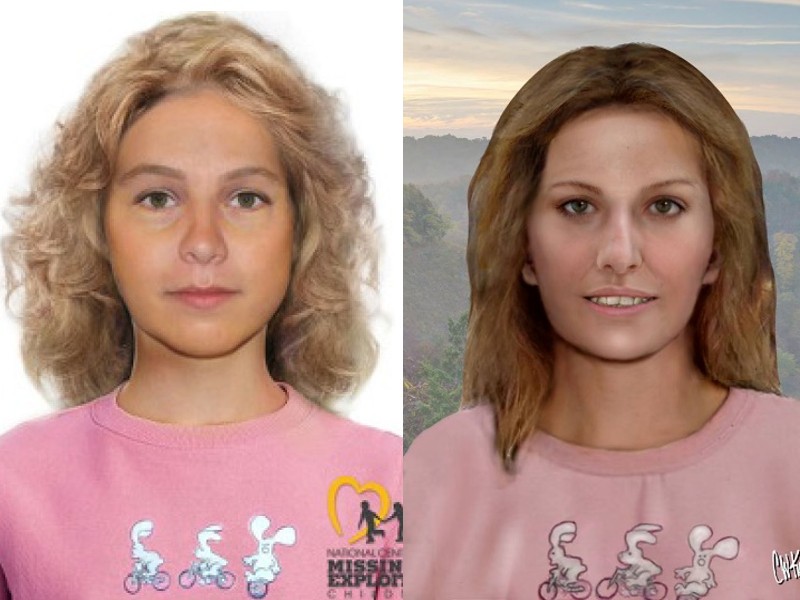20-year-old Lisa Coburn Kesler, of Jackson County, has been identified by authorities in North Carolina following a multi-decade investigation using new technologies.
33 years ago the remains of Kesler were discovered by road crews along the side of I-40 eastbound near the New Hope Church Road exit, officials said Wednesday. After a long and extensive investigation spanning over three decades, Orange County Sheriff Charles Blackwood recently announced they had identified Kesler using new technology and forensic genealogy.
Officials were reportedly able to use the then-emerging science of DNA identification to obtain criminal convictions of other cases in 1986, but DNA technology was still in its infancy in 1990 when Kesler was murdered. While the technology could be used to confirm an identity or prove involvement in a crime, DNA at that time could not be used to identify an unknown person, Orange County authorities said.
Investigators were forced to use more traditional methods, such as interviewing witnesses, pursuing leads and using missing persons reports. They also made use of facial reconstruction techniques to model Kesler’s face.
As the years passed and technology advanced, investigators were able to generate digital illustrations of Kesler. Despite these efforts, officials report Kesler’s identity remained a mystery.
“Throughout the decades, some of our finest investigators kept plugging away,” Blackwood said. “When you can’t close a case, it gets under your skin. You might set the file aside for a while, but you keep coming back to it, looking to see something you didn’t notice before, or hoping information gathered in ensuing cases has relevance to your cold case. Investigators also monitor new techniques and technologies in the field, which is what eventually led to the breakthrough in Ms. Kesler’s case.”
In June 2020, Investigator Dylan Hendricks took over the case and received assistance from agents with the State Bureau of Investigation in North Carolina. Hendricks sent a degraded hair fragment to Astrea Forensics for DNA extraction.
At that time, Hendricks brought on forensic genealogist Leslie Kaufman, who specialized in cases involving unidentified human remains. Kaufman was able to link the DNA profile of Kesler to people she believed to be paternal cousins.
Interviews were conducted and it was discovered the family had not heard from Kesler in multiple decades. Kesler also had reportedly spent most of her life living in Jackson County, Georgia.
“Essentially, there was a Lisa-shaped hole on a branch of the family tree right where the DNA told us Lisa should be, and no one knew where she was,” Hendricks said.
Investigators later requested DNA samples from a suspected maternal relative, which ended up being enough evidence to satisfy the Medical Examiner's Office and officially identify the remains as belonging to Kesler.
“I am very happy we solved the three-plus-decades-old mystery of this young woman’s identity, and I hope it provides solace to her family members,” Blackwood said. “We are grateful to the many investigators, passionate volunteers, and talented professionals who assisted with this effort. I believe we collectively demonstrated the value of dogged determination, which we will now apply to the task of identifying her killer. There is no statute of limitations on murder, and no time clock on justice.”
Those with any information on the case have been asked to contact Investigator Hendricks by calling (919) 245-2951.

http://accesswdun.com/article/2023/9/1206808/body-of-jackson-county-woman-identified-in-north-carolina-after-33-year-investigation
